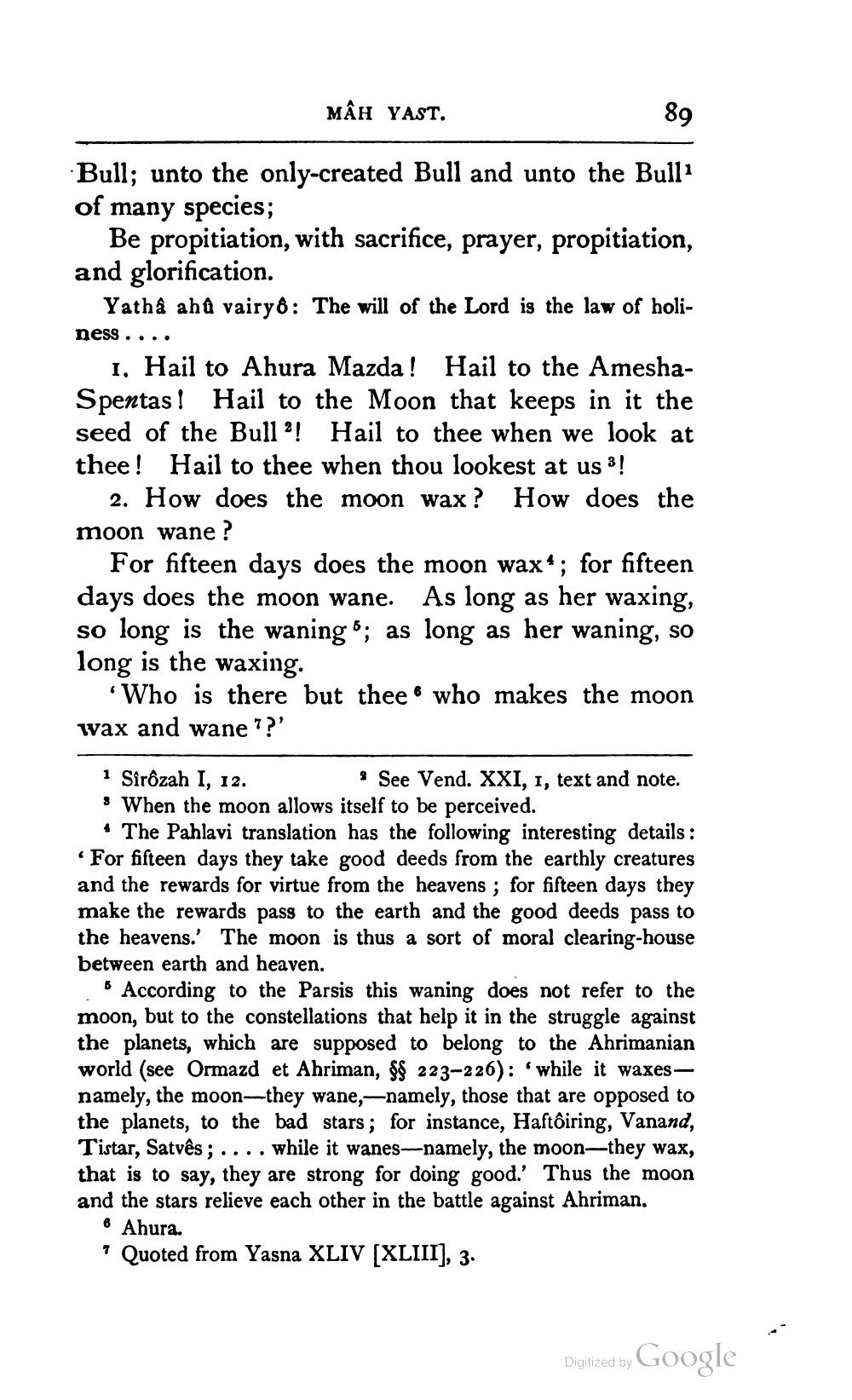________________
MÂH YAST.
Bull; unto the only-created Bull and unto the Bulli of many species;
Be propitiation, with sacrifice, prayer, propitiation, and glorification.
Yatha ahở vairy8: The will of the Lord is the law of holiness....
1. Hail to Ahura Mazda! Hail to the AmeshaSpentas! Hail to the Moon that keeps in it the seed of the Bull ?! Hail to thee when we look at thee! Hail to thee when thou lookest at us 3!
2. How does the moon wax? How does the moon wane ?
For fifteen days does the moon wax; for fifteen days does the moon wane. As long as her waxing, so long is the waning 6; as long as her waning, so long is the waxing.
Who is there but thee @ who makes the moon wax and wane??'
i Sîrôzah I, 12.
See Vend. XXI, 1, text and note. 8 When the moon allows itself to be perceived. · The Pahlavi translation has the following interesting details: For fifteen days they take good deeds from the earthly creatures and the rewards for virtue from the heavens ; for fifteen days they make the rewards pass to the earth and the good deeds pass to the heavens.' The moon is thus a sort of moral clearing-house between earth and heaven.
According to the Parsis this waning does not refer to the moon, but to the constellations that help it in the struggle against the planets, which are supposed to belong to the Ahrimanian world (see Ormazd et Ahriman, &$ 223-226): while it waxes —
amely, the moon-they wane,-namely, those that are opposed to the planets, to the bad stars; for instance, Haftôiring, Vanand, Tistar, Satves; ... . while it wanes-namely, the moon—they wax, that is to say, they are strong for doing good.' Thus the moon and the stars relieve each other in the battle against Ahriman.
6 Ahura. " Quoted from Yasna XLIV (XLIII), 3.
Digitized by Google




